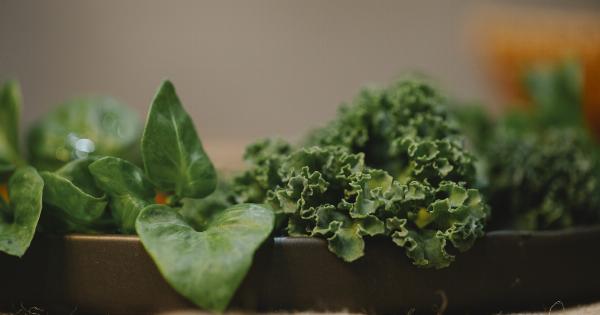When flu strikes, it can leave you feeling drained and weak. This contagious respiratory illness can cause various symptoms like fever, cough, sore throat, body aches, and fatigue.
While rest and proper medical care are essential for a speedy recovery, your diet can also play a crucial role in boosting your immune system and helping you bounce back faster. In this article, we will explore a flu recovery diet that focuses on nutrient-rich foods to promote healing and aid in restoring your vitality.
The Importance of Proper Nutrition during Flu
During a flu infection, your body’s immune system works overtime to fight off the virus, leaving you with increased nutritional needs.
A balanced diet consisting of vitamins, minerals, antioxidants, and protein can provide the essential nutrients your body requires to repair tissues, support immune function, and regain strength. Here are some key components of a flu recovery diet:.
1. Hydration is Key
Staying hydrated is crucial, especially when you have a fever and experience sweating. Adequate fluid intake helps prevent dehydration and supports a healthy immune system. Drink plenty of water, herbal teas, and clear broths throughout the day.
Avoid excessive caffeine and sugary beverages as they can dehydrate you further.
2. Immune-Boosting Foods
Recovering from the flu requires giving your immune system a much-needed boost. Incorporate the following foods into your diet to provide essential vitamins and antioxidants:.
a) Citrus Fruits
Citrus fruits like oranges, lemons, and grapefruits are packed with vitamin C, which is known to strengthen the immune system. Enjoy fresh-squeezed juices or add citrus segments to your fruit salads for a refreshing burst of flavors and nutrients.
b) Leafy Greens
Leafy greens such as spinach, kale, and Swiss chard are rich in vitamins A, C, and K, along with minerals like iron and magnesium. These nutrients play a vital role in supporting immune function and promoting overall wellbeing.
c) Berries
Berries like strawberries, blueberries, and raspberries are not only delicious but also packed with antioxidants that help combat the free radicals produced during illness. They are also a great source of fiber to support healthy digestion.
3. Protein-Packed Foods
Protein is essential for tissue repair and rebuilding a weakened immune system. Include the following protein-rich foods in your diet:.
a) Lean Meats and Poultry
Chicken, turkey, and lean cuts of beef are excellent sources of protein. Opt for grilled, roasted, or boiled preparations instead of fried or fatty cuts to keep the meal healthy and easy to digest.
b) Fish
Fatty fish like salmon, mackerel, and sardines are not only rich in protein but also contain omega-3 fatty acids, which have anti-inflammatory properties. These healthy fats can aid in reducing inflammation and improving respiratory health.
c) Legumes
Beans, lentils, and chickpeas are plant-based sources of protein that offer an array of health benefits. They are also rich in fiber, which promotes gut health and aids in digestion.
4. Comforting Warm Foods
When flu leaves you feeling under the weather, warm and comforting foods can provide relief and nourishment. Try incorporating the following into your diet:.
a) Homemade Soups
Chicken noodle soup or vegetable broth-based soups can provide hydration, essential nutrients, and comfort. The warmth of the soup can also ease congestion and soothe a sore throat.
b) Ginger and Turmeric
Both ginger and turmeric possess anti-inflammatory and antioxidant properties. Incorporate them into your meals by adding them to soups, stir-fries, or steeping them as a tea.
c) Warm Herbal Teas
Enjoy a variety of warm herbal teas like chamomile, peppermint, or echinacea. These teas can help soothe coughs, improve digestion, and promote relaxation.
5. Foods to Avoid
While certain foods can aid in flu recovery, there are some that can hinder your healing process. Avoid the following:.
a) Sugary and Processed Foods
Sugary foods and processed snacks can weaken your immune system and cause inflammation. Replace these with healthier alternatives like fresh fruits or nuts.
b) Fried and Greasy Foods
Fried foods and foods high in unhealthy fats can be harder to digest, making your body work harder when it needs to focus on healing. Opt for grilled, baked, or steamed options instead.
c) Alcohol and Caffeine
Alcohol and excessive caffeine can dehydrate your body and interfere with your sleep patterns, which are crucial for a speedy recovery. Limit your intake or avoid them entirely until you are well again.
Conclusion
While a flu recovery diet cannot cure the illness, it can help support your body’s natural healing processes and provide the essential nutrients needed for a quicker bounce back.
Remember to stay hydrated, include immune-boosting foods, consume protein-rich options, enjoy comforting warm foods, and avoid foods that can hinder your recovery. Always consult with a healthcare professional or registered dietitian for personalized advice based on your specific health condition.





























